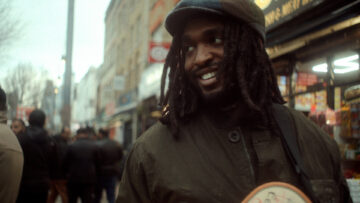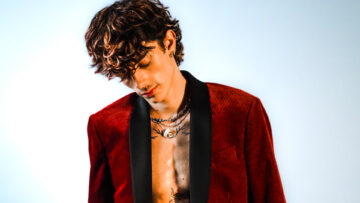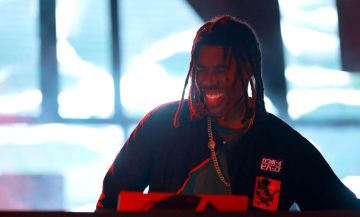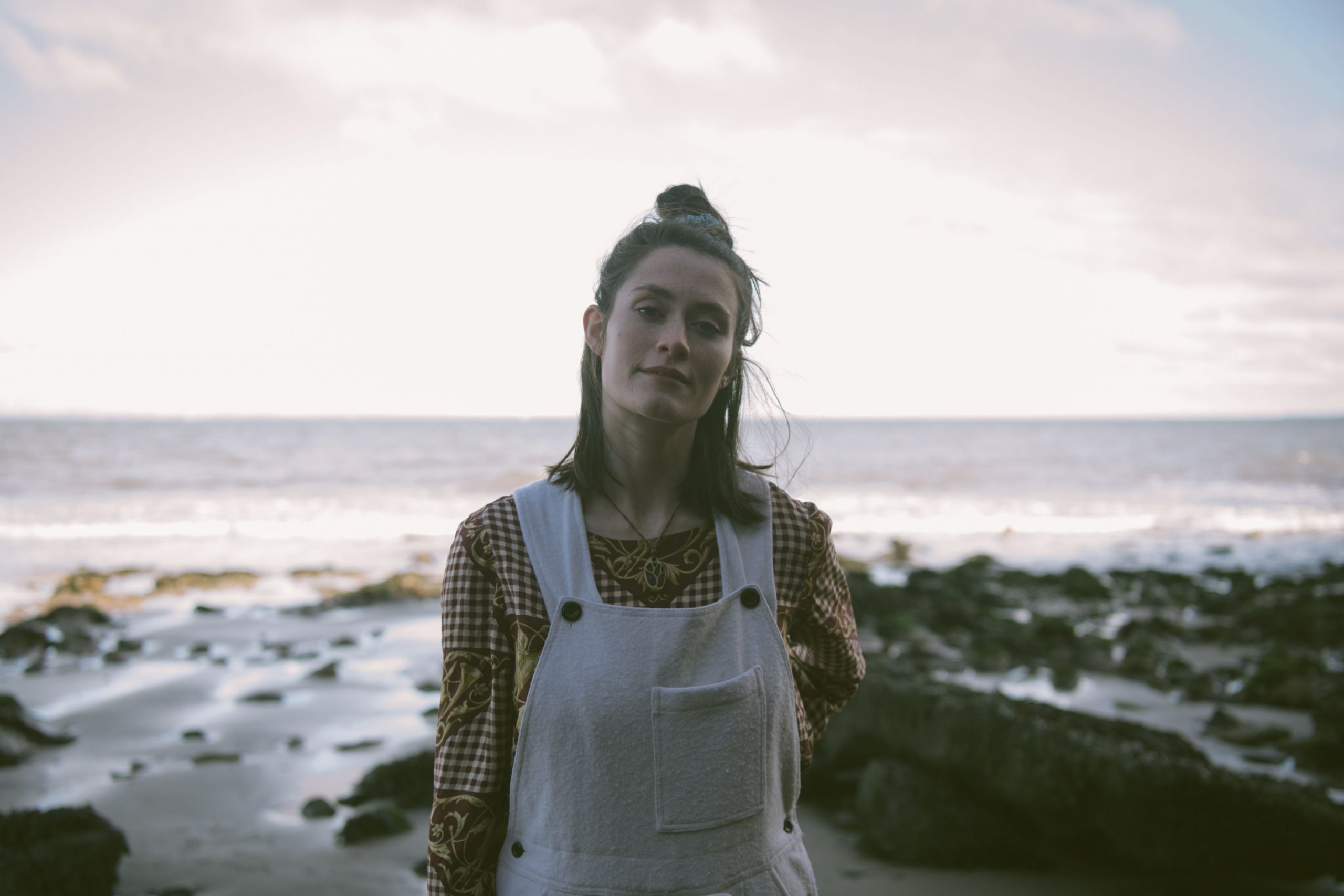
We speak to Scottish singer-songwriter Rachel Sermanni, whose latest EP, Every Every Swimming Pool Runs to the Sea, arrived last week. She talks candidly about fostering creativity, the joys of her old nomadic lifestyle, and why she’s now ready to leave it behind.
It’s been ten years since Rachel Sermanni’s debut album. She’s still only just gone 30, and assures me another album is still very much her focus, but a lot has changed during this last decade, and now seems a nice little milestone at which to look back.
There’s also the release of a new EP. Every Swimming Pool Runs to the Sea is Sermanni’s first project fully written since she welcomed her daughter, Rosa, four years ago. Though predominantly written and recorded in her native Scotland, its creation was largely dependent on an inspiring 2020 trip to Devon, where she worked with the EP’s producer Patrick Pearson.
Sermanni hails from the Scottish highlands, but admits to feeling more in touch with her Celtic heritage than her Scottish nationality. Even from our half hour conversation, I can’t imagine her ever feeling particularly fixed to any one place, let alone a country. She’s a free spirit, a wonderful singer, and a pleasure to talk to.
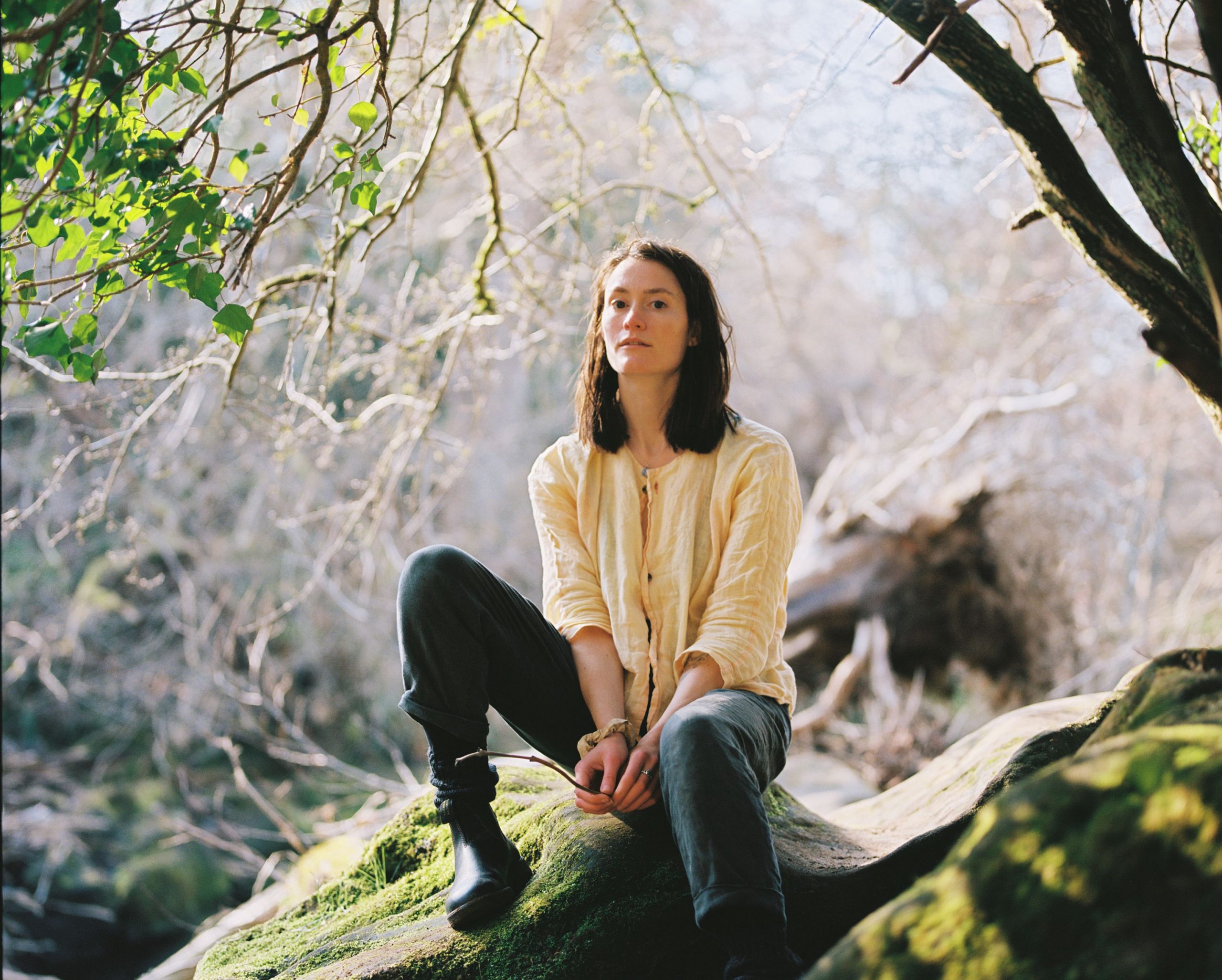
It’s been 10 years since your career really began – how has it stacked up to what you expected?
I can’t believe that it’s still happening. I feel like life has changed a lot. It’s slowed down in some ways and sped up in others. But 10 years ago, when the whole thing began and that first album came out, I was 20. I toured extensively all the time and that was such a beautiful time of life.
I think maybe I forget the darker moments. I was probably a little bit melancholy, but the experience of travelling and the freedom that came with it, the extent of the world that I got to see, I feel so, so fortunate. The gigs were amazing and it was a brilliant learning experience, in terms of developing craft, confidence in performance, as well as writing.
Where was your favourite place that you played?
Well, I definitely have an affection for Canada. It’s so beautiful and the people seem to really connect with whatever it was that I was presenting. I would often spend most of my time in Canada. When I was touring, Europe and Canada were the main places I bounced between, more so than the UK. In fact, the UK really only started to become a bit easier for me after I’d been away. The Yukon in the north of Canada was my favourite. It’s magical. I spent lots of time in Nova Scotia, too – I had a few different romantic partners there and I spent a lot of time, more or less a part of the local world of Nova Scotia.
And then I did take a break, because I had sort of burnt myself out. I slowed down and spent some time at a Buddhist monastery in the borders of Scotland. I volunteered there for three months, just serving coffee and tea, and that marked a shift and I went and recorded my third album in Berlin.
I fell pregnant after that. Rosa is four now, so it’s been really five years of not being the sort of flighty, touring, volunteering, bohemian, gypsy that I was. And it’s taken a while to settle with that shift. I’m still figuring out how to write the song that weaves into that.
Obviously, we’ve had a pandemic, so it’s very hard to say, but the initial era of the travelling and the romance of it all, I really don’t think I would go back to it, because it’s done. These days, I can see now that I don’t have to do so much in order to continue to survive.
The art will therefore change with it. But how do I sustain this life, and stay put more? It’s really interesting. I guess in the last year or so, I’ve been doing workshops, writing workshops, and I actually love that. I really love facilitating other people’s creativity – that’s been a joy.
Tell me about how Every Every Swimming Pool Runs to the Sea came to be.
Well, the writing process occurred in the later part of the year, after we had those two main lockdowns. I’d gone down to Devon to write with Pat [Pearson], the producer of the EP, and that was just a bit of a writing experiment to see what happened. And it was really nice.
Up until that point, I’d been quite stagnant, or just in a very liminal state. There’d been productivity – I was focusing on a previous EP, recording with somebody else over lockdown, in my shed, and I was making podcasts, but I hadn’t written a song. Then after going down to Devon, writing with Pat , it was suddenly like I was gushing with creativity. And I don’t know what it was – maybe the experience of leaving Edinburgh for a minute and meeting new people. Devon’s very beautiful and it was a very lush time of year, and there’s a whole theme of water throughout the EP.
Pat and I went daily to the River Dart. It was so nice to just get in the river – I’m a definite river baby, I was brought up near rivers and still I love them. We didn’t have my duties as a mama, or, I suppose, the psychological structures that you create for yourself – it was all just lifted. So the trip spurred me on and when I came back here, the next months of just writing and singing all the time felt very natural.
Have you ever taken a creative trip like that before?
Not specifically with another person, and never specifically to write. I’d never played the game of co-writing and I felt a little trepidation. I’ve enjoyed my solitary experience of writing and when I have written with others, I’ve usually done it within spaces where it’s not for yourself – I’ve done it within educational systems, and with people in prison who are affected by criminal justice system, or even at songwriting retreats where I’m mentoring, but that’s different compared to going and actually writing potentially for your own catalogue.
What was really noticeable about the co-write aspect was how you get to really reflect yourself off of somebody else. Very quickly, I was able to notice how I’d been hindering myself up until then, as my inner critic had gotten quite loud. I wouldn’t have noticed if it wasn’t for [Pat] persevering with me, and also just being so happy about stuff.
At first I thought, Oh my God, this is so hard. For me there’s a little bit of social anxiety, and I have to balance that because I love connecting with human beings, like the rest of us, I want to feel I have good connections…I’m a massive blusher. I always have been my whole life. I think blushing is such a weird thing, but it happens a lot when I’m getting to know someone and weird things like that can create an obstacle immediately. But [songwriting] is a beautiful way to connect with a human once you get past the sort of nervousness.
This experience was a catapult, a trigger, because the songs aren’t actually co-writes. ‘Aquarium Kisses’ is a co-write with Richard Walters, but that’s an unusual circumstance in that I just sent him the track, I’d already written all the verses, and it was a song in my eyes already. And he created the pause between the verses, the sort of chorus aspect…I avoided the blushing because it was all just email.
You mentioned before about working with people in prison and in criminal justice reform, I’d love to hear more about that.
There’s an organisation in Glasgow called Vox Liminis. It’s supported by universities, the University of Glasgow and Edinburgh I think, and they’ve been going for maybe close to a decade now. They’re a really amazing group of people, researching the criminal justice system, and especially – at least the parts that I’ve worked with them in – at how art and music can be a bridge when you’re coming out of prison.
One of the ways they collate research is by writing songs, so they employ musicians to go into various settings. That could be a prison setting, or a young offenders place, or with people who are either working in the prison system, or even with the kids or the partners of the people who are in prison. You’re getting a full scope of the experience and expressing it through song.

